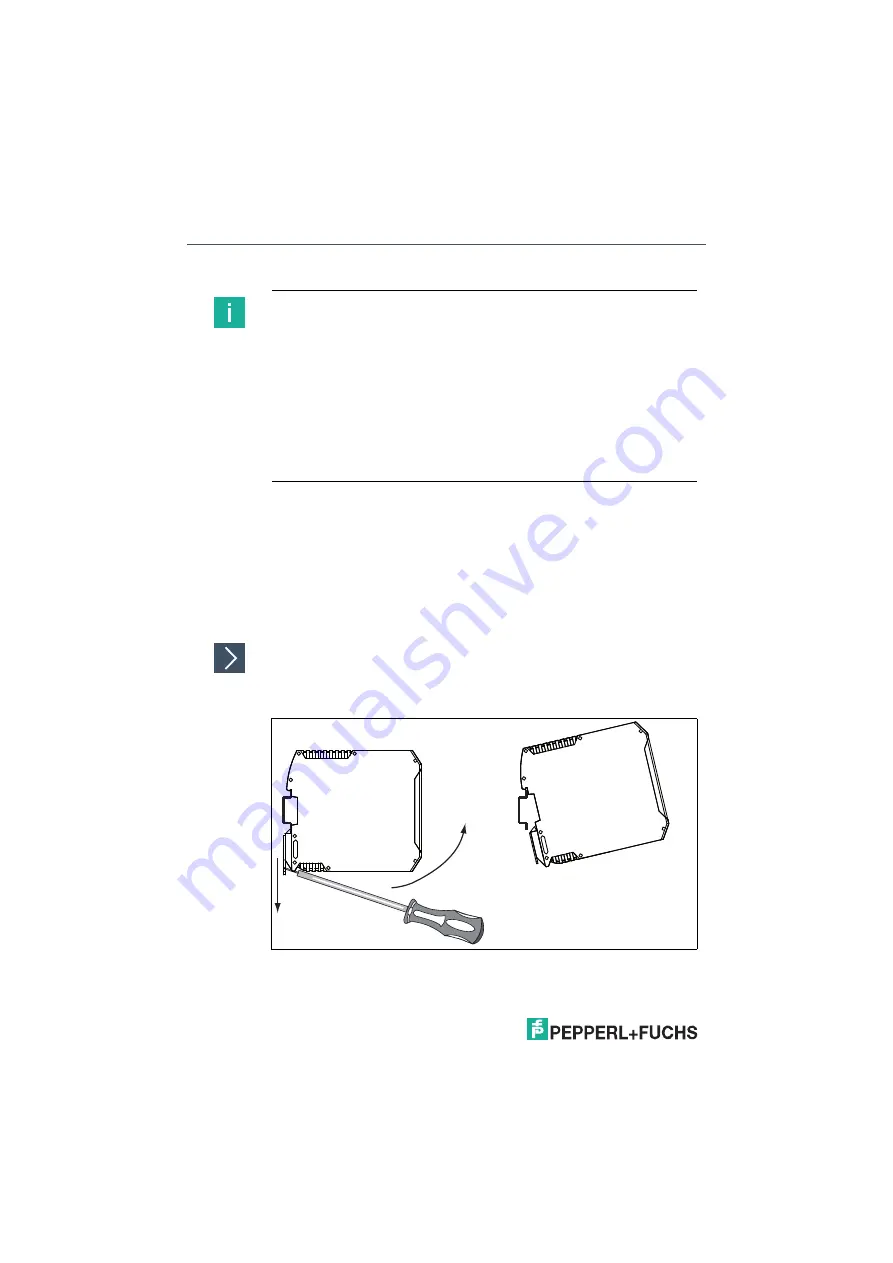
2
022-
03
14
Installation and Commissioning
Ethernet Cable Types for Different Use Cases
In order to guarantee the communication across the cable, the transmission signal
of terminal device A has to connect to the receive port of terminal device B and
vice versa. The signal has to be crossed at least once in a connection.
Example:
A switched hub (network switch) typically performs signal crossing
internally. This is why a standard Ethernet patch cable is to be used to connect to
another non-crossing device as well if a device supports an auto-crossover detec-
tion function.
3.3
Dismounting
Dismounting the Device from the DIN Rail
1.
Use a screw driver to loose the fixing trap and remove the module from the DIN
rail.
Note
Background Information
The TIA/EIA-568-B Ethernet connector specification defines 2 types of pin
assignment for an Ethernet cable.
Standard Ethernet Patch Cable
The standard Ethernet patch cable is a straight-through connection with both
RJ45 connectors at each cable end wired the same way.
Crossover Cable
The Ethernet crossover cable has the RX and TX pairs switched between the end
terminals of the cable. The crossover cable is used for connecting 2 devices that
do either both not cross or do both cross the signals. In this case, the crossover
must be done externally.



































